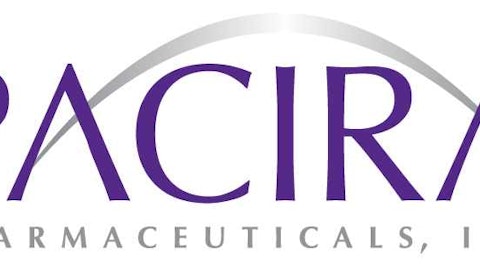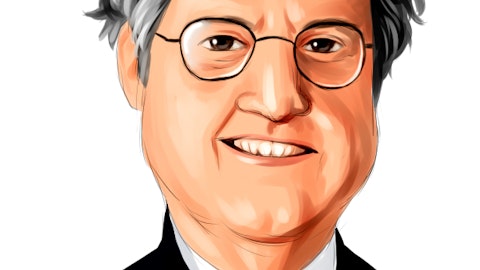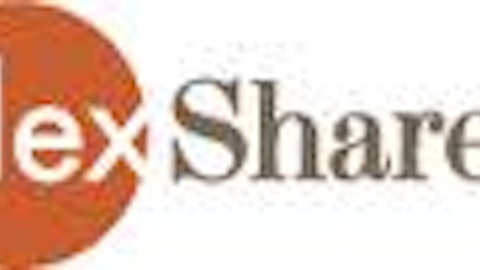Teva Pharmaceutical Industries Ltd (NYSE:TEVA)’s business has been doing well so far in 2012. In the first half of the year, revenue was up 22% versus the same period in 2011, including a 19% increase in the second quarter. Operating expenses were up a modest amount, but earnings were up and with a small decrease in share count as well the company reported $1.96 in earnings per share for the first half of the year; in the first six months of last year, Teva had $1.49 in EPS. The European business had slightly lower revenue, but strong results in both generic and branded products in the U.S. (which was responsible for over half of the company’s business) led growth. The better numbers were partly the result of the acquisition of biopharmaceutical company Cephalon.
However, a drop in the stock price in May, and a weak rally since then, has left the stock down 6% on the year while the NASDAQ is up about 15%. At a $35 billion market capitalization, Teva Pharmaceutical Industries Ltd trades at 11 times trailing earnings. Wall Street analysts expect continued growth in 2013, and so the stock actually trades at only 7 times earnings consensus. Teva’s beta is 0.7, indicating that on a statistical basis it offers at least some downside protection from a falling market. We’re not too familiar with the company’s product line, but the value appears good based on a trailing basis and with an attractive forward multiple as well it could be researched further.
Teva Pharmaceutical Industries Ltd was the largest holding in Owl Creek Asset Management’s 13F portfolio at the end of June. Owl Creek, managed by Jeffrey Altman, reported a position of 3.4 million shares (find more of Jeffrey Altman’s favorite stocks). Jacob Gottlieb’s Visium Asset Management, which tends to focus on healthcare stocks, also liked Teva as the fund increased its stake from a very small position to a total of 3.6 million shares (see more stock picks from Visium Asset Management). D.E. Shaw, named after its billionaire founder David E. Shaw, also bought shares and finished the second quarter with 2.9 million shares in its portfolio (research more stocks that D.E. Shaw has been buying).
Watson Pharmaceuticals, Inc. (NYSE:WPI) is a good peer for Teva. It carries a forward P/E of 11, representing a small premium on that basis. It has also been growing, with top-line numbers for the second quarter of 2012 coming in 25% higher than a year earlier. It doesn’t seem to be as good a value, but more defensive investors may like that it combines a decent valuation with a beta of 0.3.
Three other large-cap pharmaceutical companies are Novo Nordisk A/S (NYSE:NVO), Forest Laboratories, Inc. (NYSE:FRX), and Allergan, Inc. (NYSE:AGN). Allergan has a number of cosmetics-related medical products, and high expectations for this industry have allowed the company to trade at a trailing P/E of 27. Earnings were up 20% in the second quarter compared to the same period a year ago, with analyst optimism bringing the forward P/E down to 19. Novo Nordisk and Forest also have relatively high earnings multiples, generally in the 20s: their forward P/Es, specifically, are in the 22-24 range. Forest has been seeing much lower revenue and income; we don’t think that it is a good buy, especially compared to the much cheaper Teva and Watson. Novo Nordisk’s sales and net income were both 20-30% higher in its most recent quarterly report than what the company did in the second quarter of 2011.
All three of those peers have such higher multiples that we don’t think they make good values. Watson and Teva have also been getting good growth on a historical basis; as long as they manage to deliver future earnings in line with analyst targets, they seem like better picks based on their cheaper pricing.






